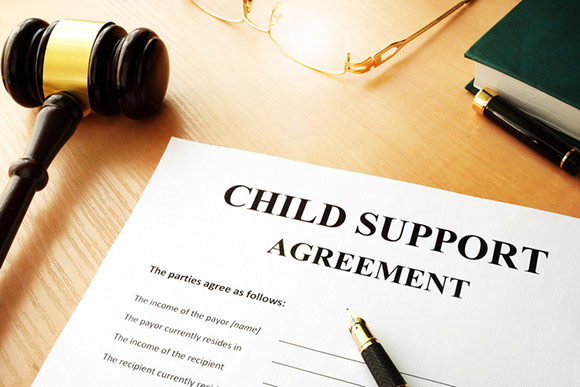People who pay child support and people who receive it often have questions about child support collection. The State of Nevada has procedures to enforce child support orders in the state.
When you understand these procedures, you know what to expect when it comes to paying child support and receiving those payments. Here’s what you need to know about child support collection in Nevada from experienced Las Vegas child support attorneys:
Child support collection works in Nevada through voluntary payments, income withholding, garnishments, and driver’s license suspension. When a payer doesn’t make their child support payments, Nevada child support enforcement officials have many options to collect payments. They may intercept wages, income tax returns, and even an insurance payment. A person who owes child support may be held in civil contempt of court and serve time in jail.
Related: What Does Child Support in Nevada Cover?
To have child support collection, you must first have a child support order. In the case of a divorce, that means having an interim order or a final judgment of divorce. When the parents aren’t married, it means bringing an action for paternity or an action to establish child custody and support. Once you have a child support order in place, you can begin taking steps to enforce the child support order.
The State of Nevada has resources at its disposal to locate a non-custodial parent. The Nevada Child Support Enforcement Office provides services to help custodial parents establish child support orders. To receive child support services, you complete an application.
If a parent doesn’t pay child support, the State of Nevada can use any of the following remedies to collect payment:
Almost any kind of income can be garnished to pay child support. Hourly pay, salaries, and bonuses can be garnished to pay child support. If a parent receives a pension, the state can take the pension payments to fulfill the child support obligation.
Disability payments, retirement benefits, annuities, and even unemployment payments are all subject to child support garnishment. Any form of income that the recipient gets is probably an option for seizure to pay outstanding child support.
Income withholding can occur as a matter of course for a child support obligation. You don’t have to be in arrears to have income withheld by your employer. However, the other types of enforcement and garnishments occur only when you miss a payment.

When a parent gets behind in child support, they need to make each monthly payment in full while getting caught up on the outstanding balance. Nevada law allows the court to garnish the current monthly support award along with an extra amount for arrears. Typically, the extra arrears is 10 percent, but it can be more if the court orders it.
Arrearages apply until they’re paid. Even if the child reaches the age of majority, the arrears are still due until they’re paid in full. There is no statute of limitations for past-due child support.
The highest amount that the State of Nevada can garnish from your paycheck for child support is 65 percent of your net pay. The limit is 60 percent unless you support a spouse or other minor children. If you support a spouse or another minor child, the limit is 50 percent. If you owe arrearages, the state can garnish an additional 5 percent for a total of 65 percent. The state has a procedure for distributing the funds when there are multiple support orders involved.
One tool that the State of Nevada has to collect child support is the driver’s license suspension. When a payer is $1,000 or more behind in support and two months or more behind in support, the state may suspend their driver’s license.
Failing to provide court-ordered medical insurance for the child or failing to comply with a subpoena to establish support can also be grounds for license suspension. The suspension terminates when the payer makes 12 months of payments or complies with the terms of a repayment plan.
The State of Nevada will enforce a child support order from another state. To have enforcement, you just need to register the order with the State of Nevada. You can also have a Nevada support order enforced in another state.
The U.S. Constitution requires each state to give full faith and credit to the laws and judgments of other states. That means the second state doesn’t have the power to adjust or nullify the order from the first state. Instead, they enforce the order like it’s their own order.
If you can’t make your child support payments in Nevada, you need to motion the court to lower your child support payments. Each month, the child support amount becomes a civil judgment against you. Even if your circumstances have changed and you’re eligible to receive a lower child support amount, you have to ask the court to modify the court order. When you’re faced with a child support order that you can’t afford, asking the court to change the order is your best bet to ensure that you can meet your obligations and avoid the enforcement procedures used by the State of Nevada.
Related: How is the Amount of Child Support Determined in Nevada?
Do you need help with child support collection? Half Price Lawyers can help. We know that whether you pay child support or are collecting it, child support can be challenging. We’re dedicated to pursuing your rights aggressively and tirelessly until you have justice. Contact us today for a free consultation from our legal team.
Our Las Vegas offices are centrally located downtown at:
732 S. 6th Street
Suite 100
Las Vegas, NV 89101
With easy access to major freeways and relevant courts, it’s easy to get the affordable legal representation you need. You can find our location and get directions to come to meet with our attorneys in the map below: